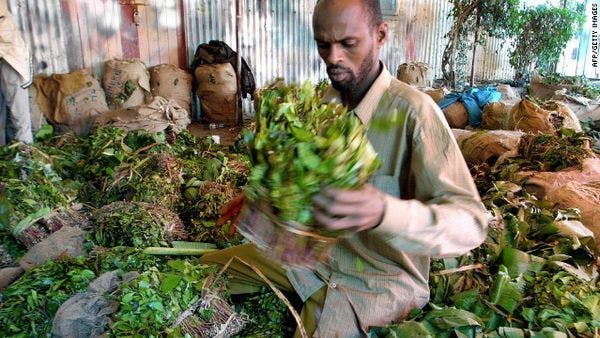Prohibition du khat au Royaume-Uni: conséquences néfastes possibles
La pénalisation du khat au Royaume-Uni pourrait encourager les organisations criminelles à entrer dans des activités de distribution.
Pour en savoir plus, veuillez lire les informations ci-dessous (en anglais).
Abonnez-vous à l'Alerte mensuelle de l'IDPC pour recevoir des informations relatives à la politique des drogues.
Britain is to criminalise the distribution and consumption of the chewable leaf khat – a mild stimulant imported from Kenya and Ethiopia. This follows the Home Secretary Teresa May’s decision in July 2013 to introduce legislation classifying khat as a class C drug, with possession resulting in a maximum two year prison sentence (or fine) and up to 14 years for supply related offences under the 1971 Misuse of Drugs Act.
The pending legislation will bring the UK into line with European and North American countries, and is being introduced on the basis that: a) use of khat among the Somali migrant community has detrimental impacts on health and family life; b) the UK has become an international distribution point for khat; c) khat use and the proceeds from the sale of khat contribute to criminal and terrorist activity.
Adverse consequences should be anticipated from the criminalisation of the shrub.
Keep up-to-date with drug policy developments by subscribing to the IDPC Monthly Alert.
Téléchargements
Sujets
Profils associés
- Global Drug Policy Observatory (GDPO)
